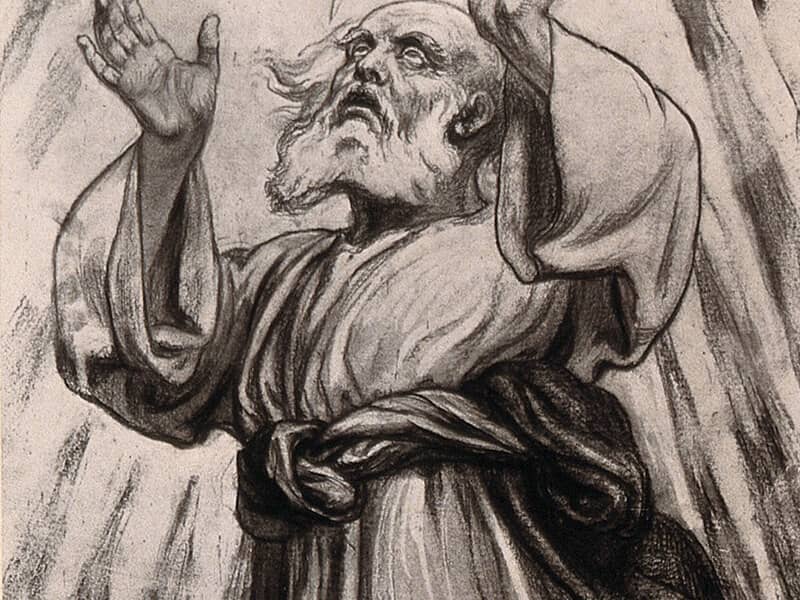A mother-in-law worries her son's shrewish wife will not adequately feed or take care of the "beloved young prince." Or a mother-in-law may fear her brilliant beautiful princess-like daughter has chosen an undeserving lout for a husband. In the face of such hostility, what are kind generous mothers-in-law (they really do exist!) to do?
Fortunately, the upcoming Jewish festival of Shavuot (the Hebrew word for "Weeks"), observed this year on next Friday and Saturday, provides a positive response to this vexing question. That's because a mother-in-law is the heroine of Ruth, the biblical book that is read by Jews on the holiday.
Shavuot is best known as the spring festival commemorating the moment in history when God gave the Torah—the Hebrew Bible—to Moses on Mount Sinai seven weeks and one day following the Exodus from Egypt. It was a time of thunder and lightning, a truly awesome moment in religious history.
But it is Ruth, a charming and carefully crafted short story of only four chapters, that always grabs my attention because it focuses on Naomi, a loving mother-in-law. Ruth is a poignant pastoral tale of loss, love and, ultimately, redemption; a work filled with what we moderns like to call "family values."
The book begins with the Israelite widow, Naomi, living east of the River Jordan with her two sons who have married Moabite women: Orpah and Ruth. Sadly, the two husbands also die leaving Naomi alone with her non-Israelite daughters-in-law. Starting a story with a trio of widows usually spells sadness and gloom, but this is not the case with the sunlit book of Ruth.
Naomi, having lost the three most important men in her life and without much hope for a grandchild, plans to return home and rejoin her Israelite people in Bethlehem. Naomi laments she is too old to bear any more sons for the young widows to marry, and she urges Orpah and Ruth to go back to their mothers' homes and let "God deal kindly with you."
"Entreat me not to leave you ... for where you go I will go, and where you lodge, I will lodge; your people shall be my people and your God my God, and where you die I will die and be buried there."
Naomi, the gallant mother-in-law, and Ruth, her loving daughter-in-law, travel together to Bethlehem, and the rest, as the saying goes, is history. Thanks to Naomi's efforts, Ruth remarries, to a man named Boaz, and gives birth to a son named Obed ("Servant").
The women of Bethlehem tell Naomi that "your daughter-in-law who loves you, who has borne you a grandson, is more precious to you than seven sons."
A delighted Naomi nurses Obed, her longed-for grandchild, who as an adult becomes the grandfather of King David. The Bible makes clear that Israel's greatest monarch is the direct descendant of Ruth, a Moabite convert, a woman who loved and followed her mother-in-law.
Besides recounting the story of Naomi and Ruth, Shavuot also celebrates the spring harvest, and synagogues at this time of the year are adorned with beautiful plants to symbolize the season. In modern Israel, thousands of people make the pilgrimage to Jerusalem for holiday worship. just as their ancestors did. School children wear crowns and garlands of colorful flowers, and dairy products are consumed during Shavuot to symbolize the agricultural roots of the festival.
Many rabbis today urge their congregational members to attend all-night study sessions in the synagogue during Shavuot.
The holiday is a time to explore the meaning of the divine revelation at Mount Sinai that included the Ten Commandments. But I hope that at such study sessions, attention is also given to the incomparable human story of Naomi and Ruth, two extraordinary women who occupy an honored place in Jewish history.

